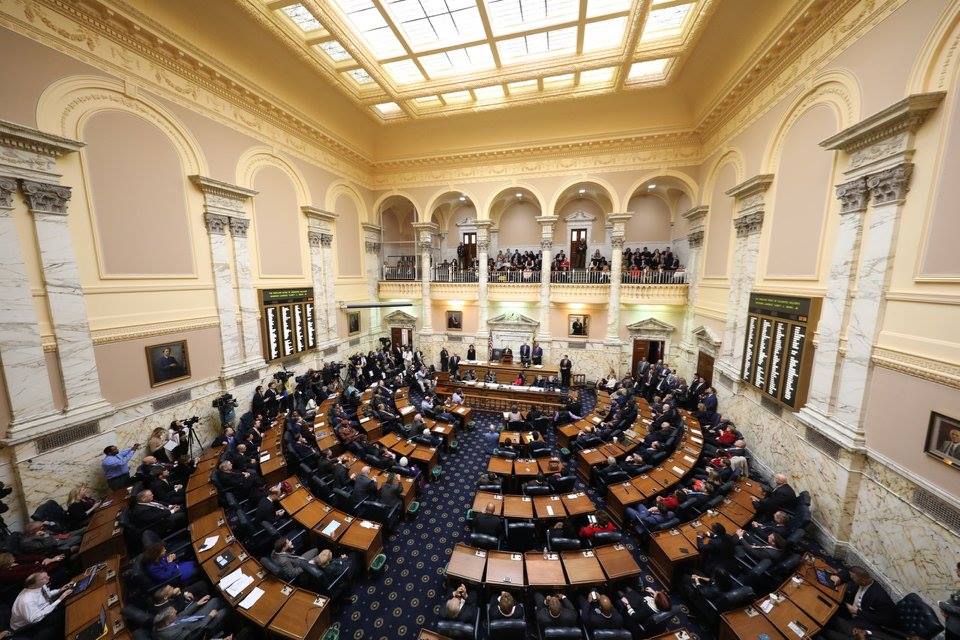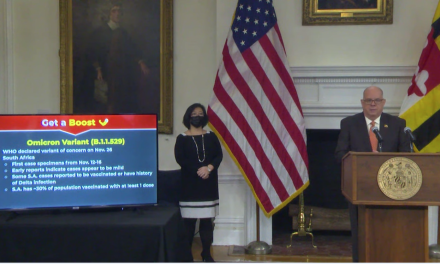By Len Lazarick
The ACLU, Common Cause and 15 other progressive groups and unions are asking the candidates for speaker of the House of Delegates to answer a questionnaire that commits them to greater openness in the legislative process and to term limits for the speaker and committee chairs.
The twelve-part questionnaire raises many of the issues that have long troubled witnesses, advocates, lobbyists and journalists about how the legislature operates.
“We need to know where House Speaker candidates stand on good governance issues, because they will shape the direction of the state for decades to come,” said Dana Vickers Shelley, executive director of the ACLU of Maryland. “Marylanders deserve and rightly demand that legislators demystify the political process and allow for greater civic engagement. Moreover, decentralization of power, diversity, and inclusion affords our communities more robust and representative debate on important issues.”
There are currently three announced candidates to succeed Speaker Michael Busch who died April 7. They are Democratic Dels. Adrienne Jones, Balto. County, speaker pro-tem; Dereck Davis, Prince George’s, chair of the Economic Matters Committee; and Maggie McIntosh, Baltimore, chair of the Appropriations Committee.
They are asked to respond by April 24. The vote on the new speaker is set for a special session of the House of Delegates Mary which Gov. Larry Hogan called Thursday.
Video of committee voting sessions
Among its more controversial issues, the questionnaire asks: “Will you require committee voting sessions be simultaneously broadcast, either online or outside the hearing room?”
While almost all hearings are now live streamed and archived, committee work sessions and voting sessions are not — often the most crucial part of the legislative process where bills are amended or killed.
The questionnaire also asks for recorded votes on committee amendments. Currently, only the final vote on bills is recorded on paper, which is turned into a PDF available online.
The questionnaire also asks for a reform of one of the most frustrating parts of the legislative process — the order in which bills are taken up at hearings. Currently, the hearing schedule lists bills in numeric order, and it is generally only at the beginning of the hearings that the committee chair announces the order in which bills will actually be heard.
Sometimes witnesses wait all afternoon or into the evening to testify on legislation that may be listed first on the hearing schedule.
“Will you require that committee chairs make reasonable efforts to publish a tentative order of bill hearings 24 hours in advance?” the questionnaire asks the speaker candidates.
The questionnaire does not ask the prospective speakers if they will fulfill the commitment made by Speaker Busch in January to have video streaming of floor sessions next year.
Reforming the legislative process
The next speaker is also asked to reform more elements of the legislative process, such as stricter enforcement of the single-subject rule for legislation. They are also asked to decentralize the leadership of the House.
“What is your vision for more diverse and inclusive leadership in the House of Delegates and how do you intend to effectuate that vision?” the coalition asks.
There is also mention of involving members of the standing committees in choosing the chairs and vice chairs.
Currently, the speaker — and the Senate president as well — have immense powers to appoint not only all the leadership positions, but all the members of the committees, including the Republicans. The questionnaire makes no mention of partisan diversity.
And finally, in seeking to replace the longest-serving speaker in Maryland history, who wielded the gavel for over 16 years, the questionnaire asks: “If elected to Speaker of the House, will you commit to stepping down from your position in 8 years or fewer? Would you support limiting the tenure of committee chairs to 8 years? If not, please explain your reasoning.”
Here is a link to the full press release from the ACLU, including statements from the NAACP.
Here is the list of the coalition members:
1199SEIU
ACLU of Maryland
Advocates for Children and Youth
CASA de Maryland
Common Cause Maryland
FreeState Justice
Leaders of a Beautiful Struggle
Inter-Faith Action for Human Rights
Life After Release
Maryland Alliance for Justice Reform
Maryland Justice Project
Maryland Prisoners’ Rights Coalition
NAACP—Maryland State Conference
NARAL Pro-Choice Maryland
Out for Justice
SEIU Local 500
Showing Up for Racial Justice (SURJ) Baltimore







Recent Comments